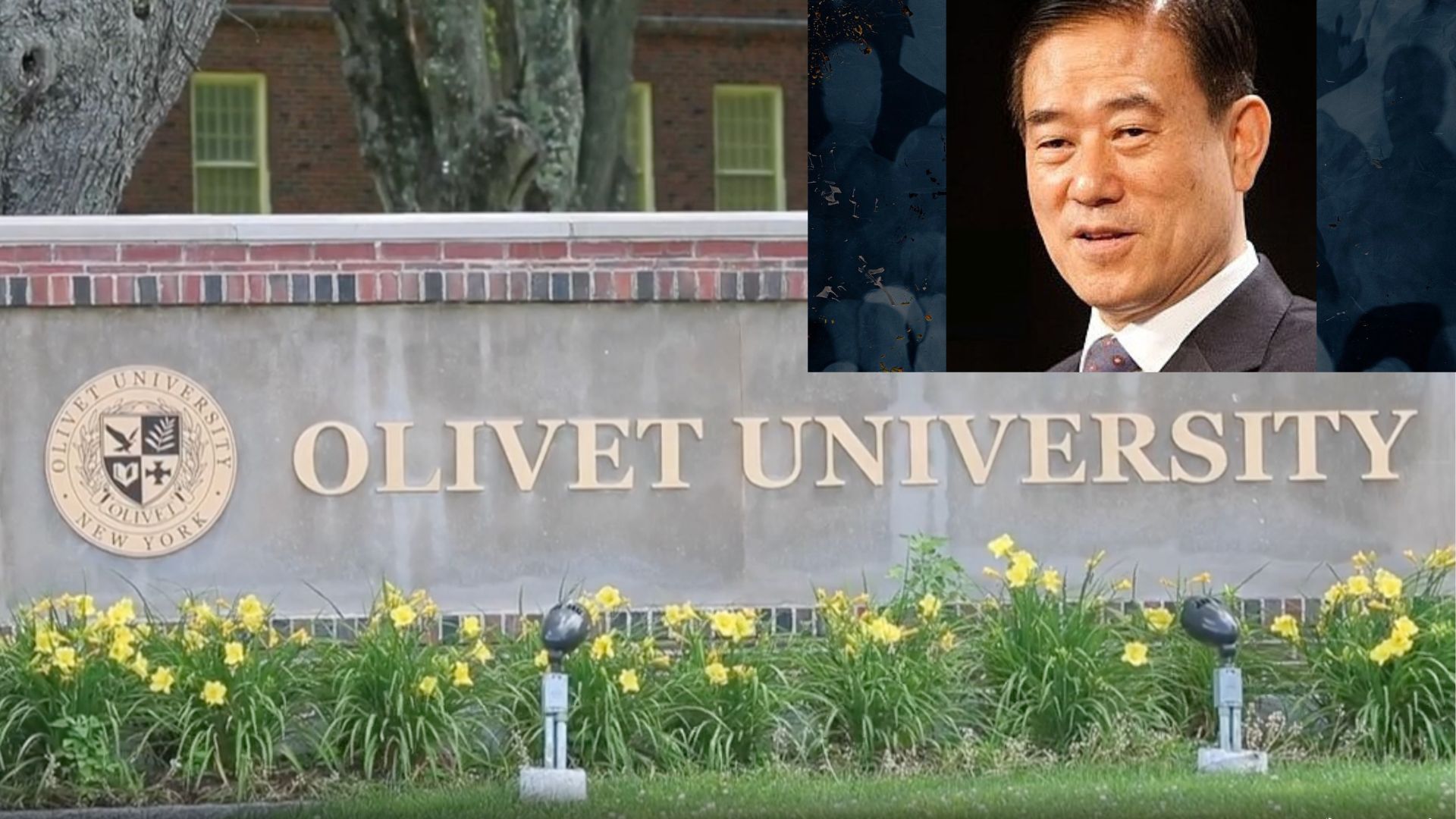No products in the cart.

Olivet University Accreditation, Visas Under Review After California Ruling
Olivet University, a California-based bible college with branches in six states and the District of Columbia, faces new challenges to its ability to operate nationally. This comes as its accreditation and student visa-granting status come under scrutiny following the revocation of its permission to operate in California.
Founded by South Korean cleric David Jang in 2000, the university remains the subject of a labor trafficking and visa fraud probe by Homeland Security Investigations and could face charges, according to agency emails. On Sunday, a California Administrative Judge issued a decision against Olivet that ordered its closure on account of 14 education violations brought by California’s Bureau for Private Postsecondary Education (BPPE).
The school issued a statement that day announcing its intent to appeal and its decision to file an application to operate under religious exemption in California. However, much of its ability to operate as a religious institution remains tied to its accreditation by the Association For Biblical Higher Education (ABHE).
“[Olivet University] substantially complies with ABHE’s Institutional Accreditation Standards, including documentation of the appropriateness, rigor, and achievement of its stated student learning outcomes,” ABHE wrote in a February 2024 decision that extended Olivet’s accreditation for a year.
Illustration by Newsweek
When asked how ABHE reconciles its prior findings with the decision by California, and how it plans to address the discrepancy, Lisa Beatty, executive director of ABHE’s Commission on Accreditation, pointed to the association’s standards and policies manual, which states:
“Should an institution or program holding ABHE accreditation or candidate status receive a negative action on the part of another recognized accrediting body with which it has had standing, the COA will, within 30 days of receipt of notification by the other agency or the institution, initiate a review of the institution’s or program’s candidate or accreditation status to determine if it continues to comply satisfactorily with the COA’s accreditation Standards.”
“Should the COA, upon completion of adverse action by another agency or state, make a decision different from that of the other body, it will, within 30 days of its action, provide the USDE Secretary and other affected bodies a rationale for its decision, to include an explanation why the issue(s) that caused adverse action by the other accreditor was not sufficiently compelling to prevent the COA from coming to a different decision.”
ABHE and Olivet exhibited a close public relationship throughout the years in which the latter faced legal and administrative trouble. Current Olivet Vice President Walker Tzeng — who’s maintained a relationship with the school since he graduated from its Ph.D. program in 2010 — served as a member of ABHE’s leadership during the same year the school was under probation. In May of 2023, Olivet touted its role in ABHE’s “Flagship Institutions” event.
The Council for Higher Education Accreditation, which accredits ABHE, acknowledged receiving Newsweek’s request for comment but could not respond in time for publication. The U.S. Department of Education similarly acknowledged the request but was not able to respond in time. Newsweek contacted Olivet after business hours and will update if any comment is received.
Olivet, which draws its student body heavily from foreign countries, faces serious risks to its model if national authorities act against it. In a statement to Newsweek, a spokesperson for the Student and Exchange Visitor Program, which operates under the Department of Homeland Security and facilitates the student visa process, said the program is “aware of and is reviewing the recent Board of Private Postsecondary Education decision.”
Along with its flagship campus in the high desert town of Anza, California, Olivet continues to operate extension campuses in Florida, Missouri, Indiana, Tennessee, Texas, and D.C. The Higher Education Licensure Commission, which oversees D.C., acknowledged Newsweek’s request but was unable to respond to publication. Florida’s Department of Education did not respond as well.
The education authorities overseeing Olivet in Missouri, Indiana and Texas told Newsweek that Olivet’s religious exemptions allow it to continue operating, with some referring to ABHE for comment. The Tennessee Higher Education Commission stated that it’s “currently reviewing the recent decision by California, communicating with Olivet University officials, and will act appropriately.”
Olivet has long focused its efforts on expanding its reach across the U.S. In Florida, it purchased a historic hotel in the town where it operates its extension campus despite protests from residents and city staff, according to reporting by the Orlando Sentinel. Similarly, residents who live near the school’s Missouri campuses expressed concern about the school, per Fox 4 Kansas City.
California’s attorney general, acting on behalf of the BPPE, petitioned the state’s Department of Consumer Affairs to close Olivet University — or revoke its permission to operate — over the alleged violations of education regulations. Judge Debra Nye-Perkins who presided over the hearing, said Olivet demonstrated a “cavalier attitude” toward the regulations. She gave the university until January 10 to propose a plan to allow its remaining students to complete their studies.
This effort to close the university began when California education investigators made an unannounced visit to the Anza campus on November 15, 2022. Investigators say they found evidence that Olivet was teaching substandard courses with unqualified teachers to a student body that matched neither academic records reported to regulators nor the university’s own financial data. Similar allegations have already led regulators in eight states and territories to shutter Olivet campuses or begin reviews of the college.
Newsweek previously covered the concerns of Anza residents who expressed dismay over the allegations surrounding the school and its role in their community. These residents declined to use their names when speaking to Newsweek out of fear of retaliation. Republican Congressman Ken Calvert, who represents the district containing Olivet and previously called for it to be fully investigated, said the California ruling demonstrates Olivet’s unsatisfactory performance as an institution of higher learning.
“All American schools and universities should be held accountable for the quality of education they are providing for students,” he told Newsweek in a statement. “The ruling in the Olivet University case indicates they were falling short of the standards we expect our universities to uphold.”


